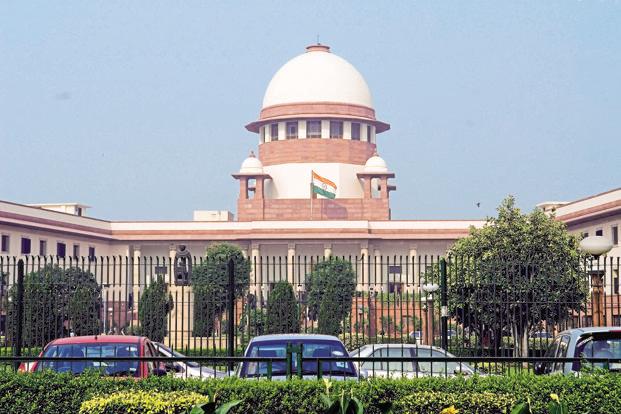Latest News
Second Complaint On The Same Facts Not Maintainable: Supreme Court

In this case, G.S.Naidu owned a Maruti-800 vehicle, he later passed away leaving behind his widow, three sons and a daughter(who was unmarried and has since then passed away). His second son filed a complaint against his brother( the third son of G.S.Naidu) and his wife. In the complaint he stated that the aforesaid vehicle has been sold by his brother and his wife by putting forged signatures of G.S.Naidu. It was contended that the act of the respondents squarely covers the offences punishable under Section 409, 420, 467, 468 and 471 of the IPC and therefore, the respondents are liable to be punished accordingly. The complaint came up before the Judicial Magistrate First Class, Jabalpur, who concluded that “on the basis of evidence and document produced on behalf of complainant it appears that no prima facie is made out against accused Samta Naidu and Dilip Naidu. Hence, complaint under Section 203 Criminal Procedure Code is rejected and thereby dismissed.”
Thereafter, another complaint was filed by the complainant on same allegations but relying on additional material. The Judicial Magistrate First Class Jabalpur took cognizance in respect of offence punishable under Section 420 IPC but rejected the Complaint with respect to other offences. The appellants challenged this before this before the High Court.
The High Court took both the criminal revisions and on the question of maintainability of second complaint refused to interfere in the same and dismissed the revision petition. Aggrieved, the Appeallants approached the Supreme Court in Appeal.
The Supreme Court relied on the judgment Nath Taluqdar vs. Saroj Ranjan Sarkar and pointed out “ There was no legal infirmity in the first complaint filed in the present matter. The complaint was filed more than a year after the sale of the vehicle which meant the complainant had reasonable time at his disposal. The earlier complaint was made out; the earlier complaint was not disposed of any technical ground; the material adverted to in the second complaint was only in the nature of supporting material; and the material relied upon in the second complaint was not such which could not have been procured earlier. Pertinently, the core allegations in both the complaints were identical.”
The second complaint can lie only on fresh facts or even on the previous facts only if a special case is made out. In the present case, neither have the complaints been dismissed on merit nor have they been dismissed at the stage of Section 203 CrPC. On the other hand, only on being satisfied of a prima facie case, the learned Magistrate had issued process on the complaint. It was categorically observed that in the absence of any provision in the Code barring a second complaint being filed on the same allegation, there would be no bar to a second complaint being filed on the same facts if the first complaint did not result in the conviction or acquittal or even discharge of the accused, and if the dismissal was not on merit but on account of a default on the part of the complainant.
Thus, the appeals were set aside by the Supreme Court.
Document:



































































































